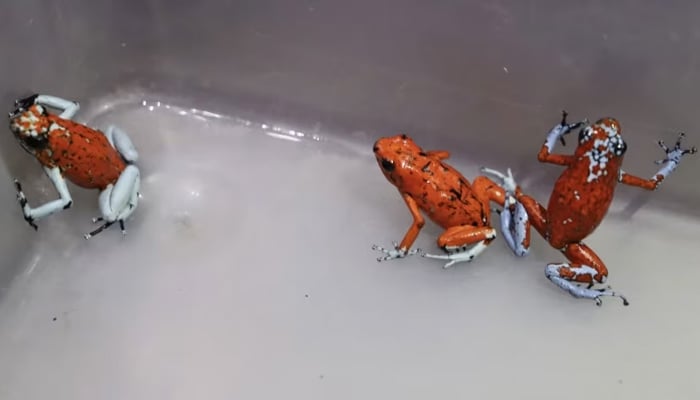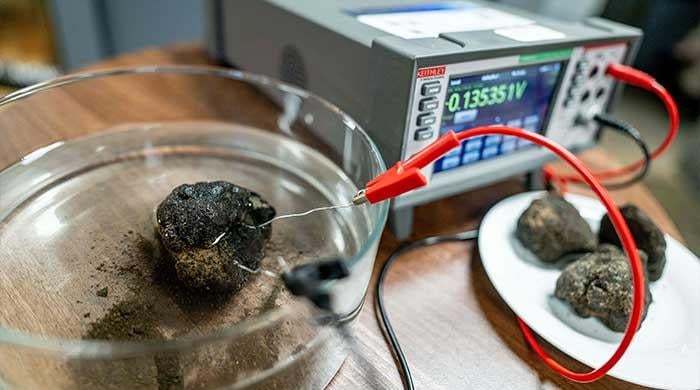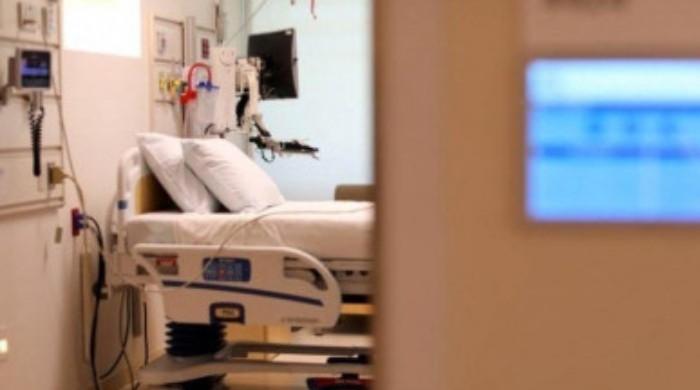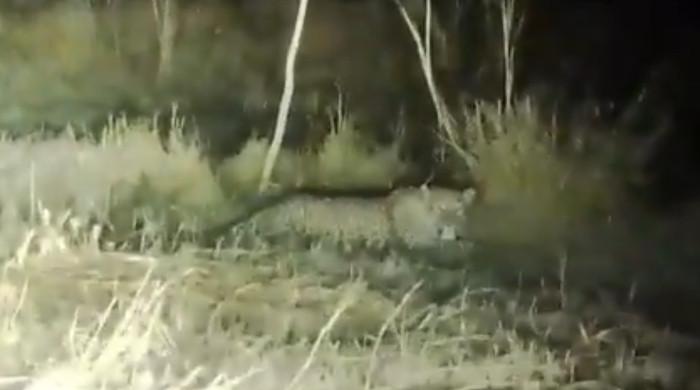At least 130 poisonous frogs found in woman's luggage in Colombia
Bogota Environment Secretary Adriana Soto said that Harlequin frogs were a gift to the woman in southern Colombia
January 31, 2024

At least 130 highly poisonous Harlequin frogs were recovered from the luggage of a Brazilian woman in Bogota airport, Colombia who was trying to illegally transport them, according to the airport officials.
Colombia police said that she was charged with wildlife trafficking as a video statement by officials noted that the poisonous frogs were stressed and dehydrated.
The woman going to Sao Paulo via Panama and in her luggage, authorities found the less than five centimeters frogs in a small film canister.
Bogota Environment Secretary Adriana Soto said that Harlequin frogs were a gift to the woman in southern Colombia.
Local police said the amphibians can be valued at nearly $1,000 each.
Bogotá Environment Secretary said the fine for possessing these frogs — less than five centimeters could reach 56 million pesos — $14,300.
These frogs are also called poison-dart frogs (Oophaga histrionica) as their glands present on the skin can produce toxic poison. In the past, the toxic poison has been used to coat the tips of the darts for hunting as they are effective in killing small animals.
These frogs measuring nearly the size of a human thumb Harlequin are considered endangered species. They are found in humid forests along the Pacific coast between Ecuador and Colombia, and in other countries in Central and South America.
Wildlife trafficking is highly common in these areas.
Bogota Police Commander Juan Carlos Arevalo said: “This endangered species is sought after in the international market,” adding that the collectors pay as much as $1,000 (£780) for each of the amphibians.
A similar incident of animal smuggling was caught in 2022 in Bangkok when two women were attempting to illegally transport 100 live animals such as snakes and porcupines in their luggage.
The X-rays revealed that two armadillos, two porcupines, 20 snakes, 35 turtles, and 50 chameleons were inside the luggage.
They were also stressed and dehydrated.











